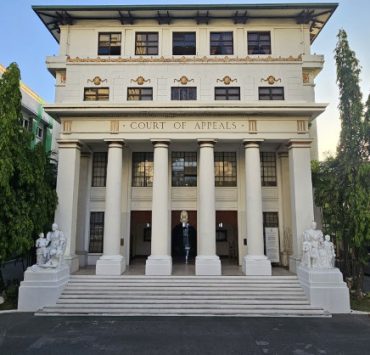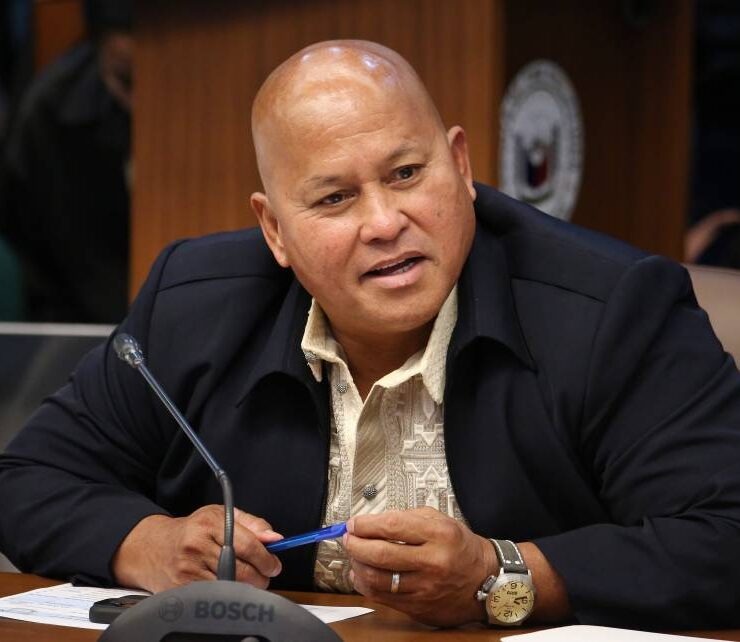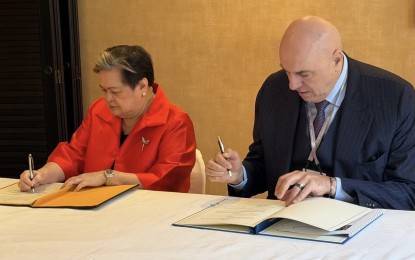Ayala family matriarch Doña Bea dies at 88

Beatriz Zobel de Ayala, matriarch of the family behind the oldest business conglomerate in the country, died on Monday, Sept. 23. She was 88.
Also addressed as Doña Bea, Zobel was the wife of Ayala chair emeritus Don Jaime Zobel de Ayala. Her survivors also include their seven children: Jaime Augusto, who now chairs Ayala Corp.; Fernando, who heads the Ayala Foundation; and daughters Beatriz Susana (Bea Jr.), Patricia, Cristina, Monica and Sofia.
The company announced the death on Tuesday, saying “the family requests privacy during this most difficult time.”
Despite the family being one the pillars of Philippine business, Zobel kept a relatively low profile in industry circles. While Don Jaime led the conglomerate for almost five decades, she chose to remain in the background, her public life largely limited to her philanthropy.
Still, her influence was profoundly felt within the family as she provided steadfast support and guidance behind the scenes.
She actively participated in social events to bolster her husband’s—and later their children’s—advocacies, stepping back from public engagements only after his retirement in 2006.
Simple act
During the pandemic, the Zobel couple captured public attention when a photo of them receiving their COVID-19 vaccines went viral. Demonstrating their humility, they declined the chance to skip the vaccination line, a simple act that resonated deeply and highlighted their grounded values.
Doña Bea was actively involved with the Catholic Women’s League and supported numerous charitable endeavors, including projects for New Bilibid Prison and Tala Leprosarium.
Born in Madrid, Spain, Beatriz Miranda Barcon was also a passionate advocate for Filipino culture and heritage.
In 1991, she partnered with the Ayala Foundation to launch the Iraya-Mangyan program in Oriental Mindoro, which sought to preserve the traditions of the indigenous Iraya-Mangyan community, particularly their exquisite nito weaving.
‘She’s holding the weird one’
In 2000, she focused on improving conditions at Elsie Gaches Village, a community for the disabled located in Muntinlupa City.
Sofia Zobel-Elizalde, speaking to Inquirer Lifestyle when she represented her mother at an Elsie Gaches event, said: “My mom has a gift with the handicapped. She loves children. Some people get scared to go near them. She had set the example that there’s nothing to be afraid of. They don’t have any disease.”
“My mom goes to Elsie Gaches, hugs and kisses the kids. She adores them. People were shocked she would go inside the smelly place. There was a man with no legs and arms and he was lying on the floor in the cage. My mother insisted on having him picked up [from the floor]. They pulled him up. He was released. My mother took him into her arms. He cried because no one had ever touched him. People were saying, ‘She’s holding the weird one.’ My mother said, ‘They have children but have never been hugged.’”
Also speaking to the Inquirer in 2008, in one of the rare occasions she granted interviews, Doña Bea said: “As my husband retired, I went more deeply into charity … I love solving problems.”
“I have a secretary who says, ‘Mrs. Zobel, you’re everywhere, what’s your problem?’ Now mostly I take care of my husband and he takes care of me. We’ve decided that this is the best time of our lives … I just want to be of help. Anything that will be good for the Philippines I will be interested in.” —REPORTS FROM MEG J. ADONIS, INQUIRER RESEARCH AND INQUIRER LIFESTYLE INQ
#





















